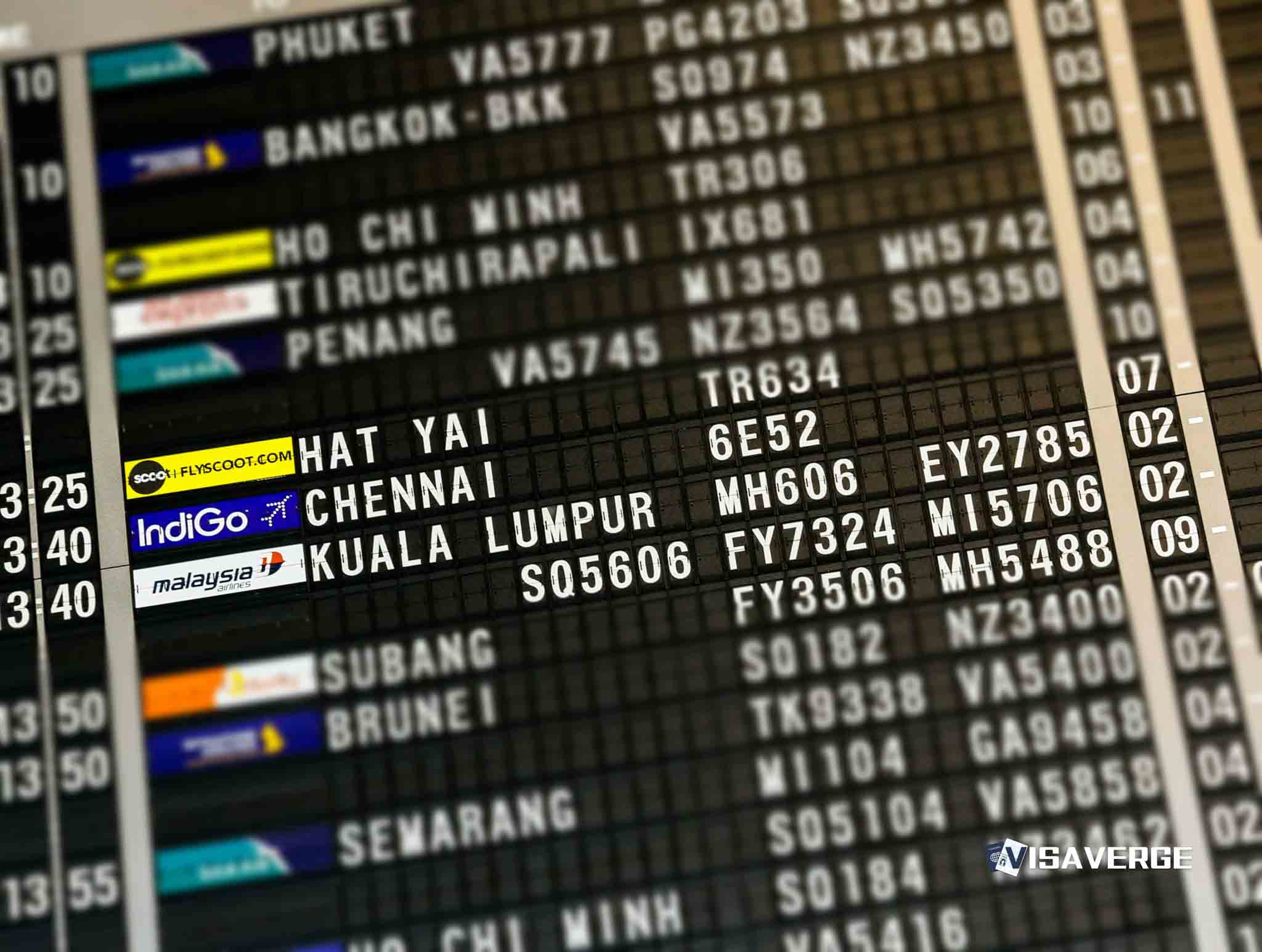Saudi Arabia has launched a new skill-based work visa system that reshapes how foreign workers qualify for jobs across the kingdom, setting tiered standards for pay, education, and experience tied to the Saudi Standard Classification of Occupations. The changes affect existing expatriates from July 5, 2025, and all new hires from August 3, 2025, according to the Ministry of Human Resources and Social Development. At the center of the reform is the Saudi Skilled Worker Visa, which now applies within an organized framework of High-Skilled, Skilled, and Basic categories. The government says this system supports Vision 2030 by aligning talent with fast-growing sectors and improving how employers hire and retain qualified staff.
Overview of the new classification framework
- HRSD groups roles into nine occupational bands.
- Groups 1–3: High-skill occupations (doctors, engineers, IT specialists, senior corporate leaders).
- Groups 4–8: Technicians and mid-level professionals.
- Group 9: Lower-skilled roles with an upper age cap.

Employers will submit new applications and reclassifications through the Qiwa platform, which connects HRSD and the Ministry of Foreign Affairs for visa authorization. The system is automated, and both companies and workers can request a review if the skill level shown appears incorrect.
Key eligibility requirements for the Saudi Skilled Worker Visa
- A confirmed job offer from a Saudi employer registered with HRSD.
- Applicants must be 21 years or older.
- Pass medical and police checks.
- Meet salary thresholds that match the assigned skill category.
High-Skilled specifics:
– Minimum monthly wage: SAR 15,000.
– Typically requires a bachelor’s degree or higher.
– At least five years of relevant experience.
– Subject to a points-based review focused on education, experience, and wages.
Skilled and Basic roles follow lower minimum salary lines but still require appropriate credentials and recognition under the Saudi framework.
Why the reform? Objectives and sectors targeted
Officials say the system aims to:
– Reduce job-role mismatches.
– Strengthen labor quality in sectors tied to major Vision 2030 projects.
Targeted sectors include:
– Healthcare
– Construction
– IT
– Oil and gas
– Education
– Tourism
– Finance
VisaVerge.com reports the changes are meant to bring more order and predictability to hiring, with greater transparency for companies and applicants.
Rollout timeline
- Existing expatriates: reclassification began July 5, 2025 (via employer
Qiwaaccounts). - New overseas hires: must be processed under revised rules from August 3, 2025.
In practice, employers offering a High-Skilled position must meet the salary floor and present a contract aligned with the worker’s accredited qualifications. HRSD emphasizes professional accreditation to benchmark foreign degrees and certifications against local standards.
Step-by-step application and visa process (employer-led)
- Employer submits application via
Qiwato HRSD and the Ministry of Foreign Affairs. - Application must:
- Specify the correct skill tier and occupation code.
- Attach a signed employment contract.
- Include proof of accreditation when required.
- Employer pays applicable government fees.
- After HRSD and Ministry approval, employer receives a visa authorization slip.
- Applicant uses the slip for visa stamping at a Saudi embassy/consulate following medical screening at an approved clinic.
- After arrival in Saudi Arabia, employer assists with the Iqama residency permit tied to the work permit.
- With the Iqama, the employee can begin work and access services (housing registration, mobile lines, bank accounts).
Medical and document requirements
- Medical checks typically include:
- Blood tests
- Chest X-ray
- Screenings for Hepatitis, HIV, and TB
- Applicants should prepare:
- Passport and supporting papers
- Original degrees and certified translations (if needed)
- Professional licenses and letters of experience
Embassy submission and approval follow medical clearance and document verification.
Important implications of classification and misclassification
- Correct classification affects:
- Base pay
- Promotion chances
- Long-term stability and family sponsorship
- Misclassification can affect family benefits, as some employers link these to role seniority and skill level.
- HRSD offers correction tools through
Qiwaso employers and candidates can request reviews.
Important: Pay close attention to classification details, since placement determines real-world benefits and conditions.
Examples to illustrate placement
- High-Skilled: Electrical engineer with 7 years of experience, a bachelor’s degree, and SAR 16,000 monthly—likely meets High-Skilled criteria.
- Skilled: Radiology technician with a diploma, 3 years of hospital experience, and a salary below the High-Skilled line—likely falls in groups 4–8.
- Basic: Warehouse roles with limited duties—may fall under Basic, which has an upper age cap of 60 years.
Points-based review and upgrading paths
- High-Skilled roles use a points-based review favoring:
- Advanced degrees
- Longer work histories
- Competitive pay (e.g., SAR 15,000 wage floor)
- Workers close to the High-Skilled threshold may:
- Upgrade credentials
- Negotiate higher pay packages
Employer responsibilities and best practices
Employers must:
– Select the correct tier and occupation code in Qiwa.
– Match salary in the contract to the tier’s minimum.
– Verify accreditation and attach documentation.
– Pay applicable government fees.
Recommended internal checklist:
– Confirm occupation code
– Ensure salary meets tier minimum (with buffer to avoid downgrades)
– Verify accreditation
– Ensure contracts reflect precise duties
– Train a designated Qiwa user to reduce errors
Companies hiring at scale may need to coordinate with overseas recruiters to ensure consistent job titles and descriptions.
Document verification and practical tips for applicants
- Expect closer verification: universities, licensing bodies, and former employers may be contacted.
- Prepare certified copies of degrees and transcripts.
- Verify registration status with any professional council.
- If Saudi-recognized accreditation is required, complete it before the employer files.
Practical filing tips:
– Schedule medical screening early at approved clinics.
– Keep digital and paper copies of medical results, police clearances, and reference letters.
– If classification seems incorrect, ask the employer to file a correction via Qiwa.
Family sponsorship, visa duration, and benefits
- Visa duration: typically 1 to 2 years, renewable.
- Potential to sponsor immediate family after Iqama issuance, subject to company policy.
- Income is tax-free.
- Family sponsorship and benefits remain subject to employer rules; correct tiering can make it easier for employers to justify family benefits.
Potential sectoral impacts and recruitment timing
- Companies in healthcare, construction, NEOM projects, and IT will be most affected.
- Recruiters suggest companies may move faster to secure top candidates before budget cycle deadlines.
- Mid-level professionals may benefit from clearer job titles and documented responsibilities that justify higher tiers.
Case-by-case reviews and special scenarios
- Complex backgrounds, mixed duties, or unrelated degrees may trigger extra checks.
- Detailed job descriptions mapping duties to occupation codes are helpful.
- Employers should document leadership scope, technical depth, or compliance responsibilities to justify High-Skilled classification beyond salary.
Strategic outlook and longer-term effects
- The system aims to provide a reliable talent pipeline for major projects (NEOM, Qiddiya) and sector expansion (healthcare, tourism, IT).
- It shifts from a one-size-fits-all permit to a precise system linking documentation and salary to role seniority.
- With time, a Skilled worker could move to High-Skilled as education, experience, and salary align with points and pay lines.
Final practical recommendations
- Gather original degrees, certified translations, licenses, and letters of experience early.
- Double-check job titles and duties in the offer and contract to match occupation codes.
- Keep clear records of education, accreditation, and work history for potential reviews.
- Schedule medical checks early and maintain copies of all documents.
- Employers should build
Qiwa-aligned internal checklists and train staff on platform use.
For official information and updates, HRSD directs employers to file through Qiwa and to consult the Ministry’s guidance: Ministry of Human Resources and Social Development. The ministry advises both employers and workers to use platform tools to track status and request corrections if needed.
With clear rules on pay and proof of skills, the new system aims to reduce surprises for both employers and workers—giving skilled professionals a more predictable path to build careers in the kingdom while helping projects secure the talent they need.
Frequently Asked Questions
This Article in a Nutshell
Saudi Arabia’s new skill-based visa, effective July–August 2025, classifies workers into High-Skilled, Skilled and Basic tiers with salary, education and experience requirements. Employers must apply via Qiwa and provide accreditation; correct classification affects pay, sponsorship and career outcomes.








